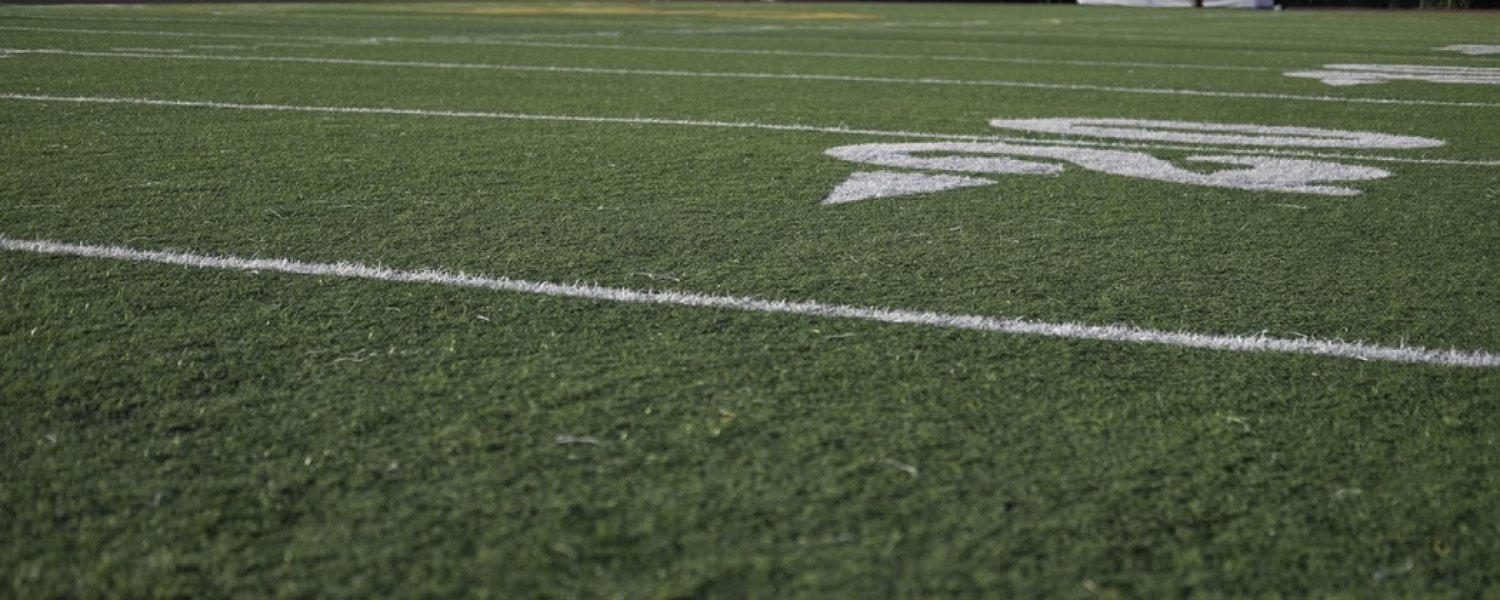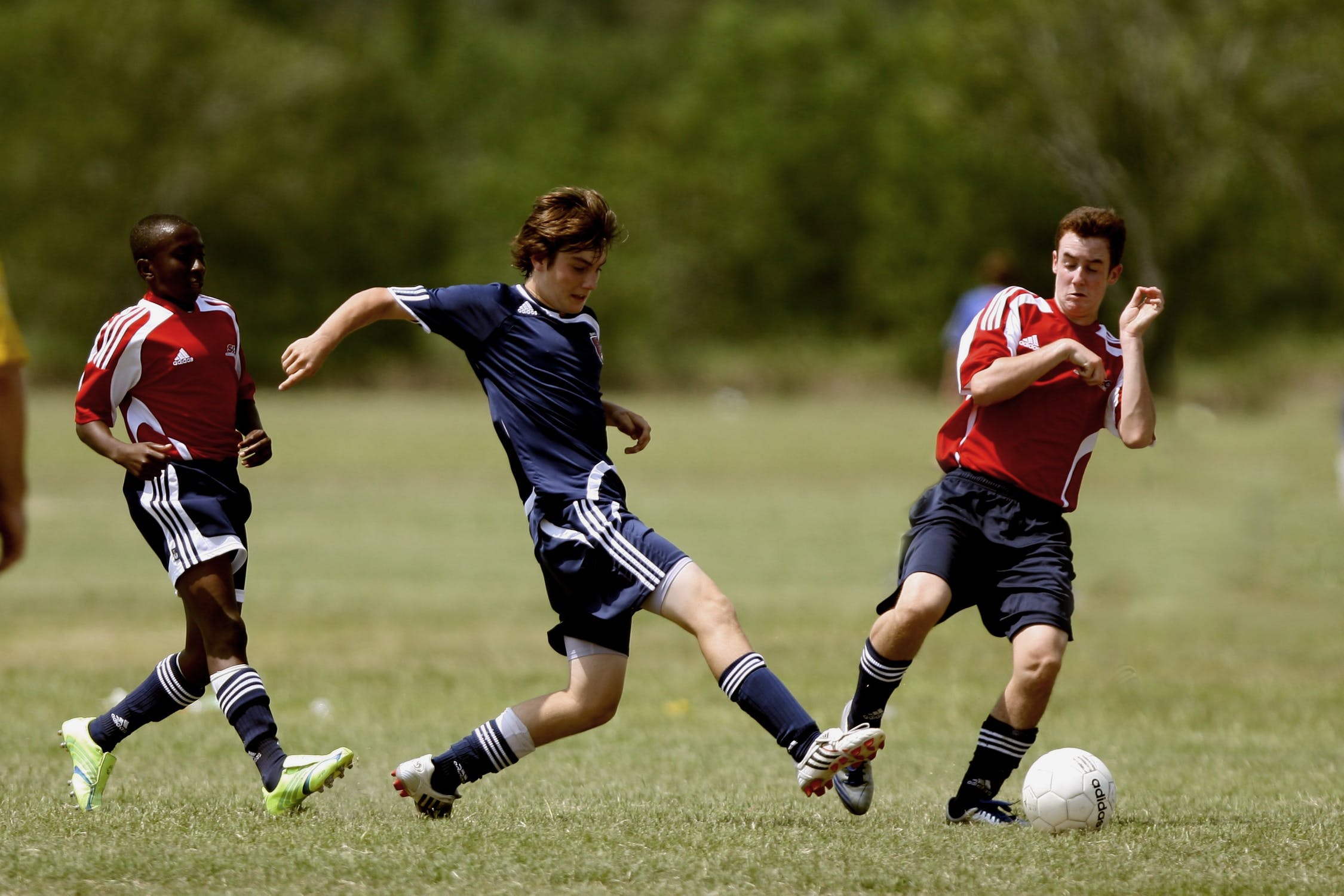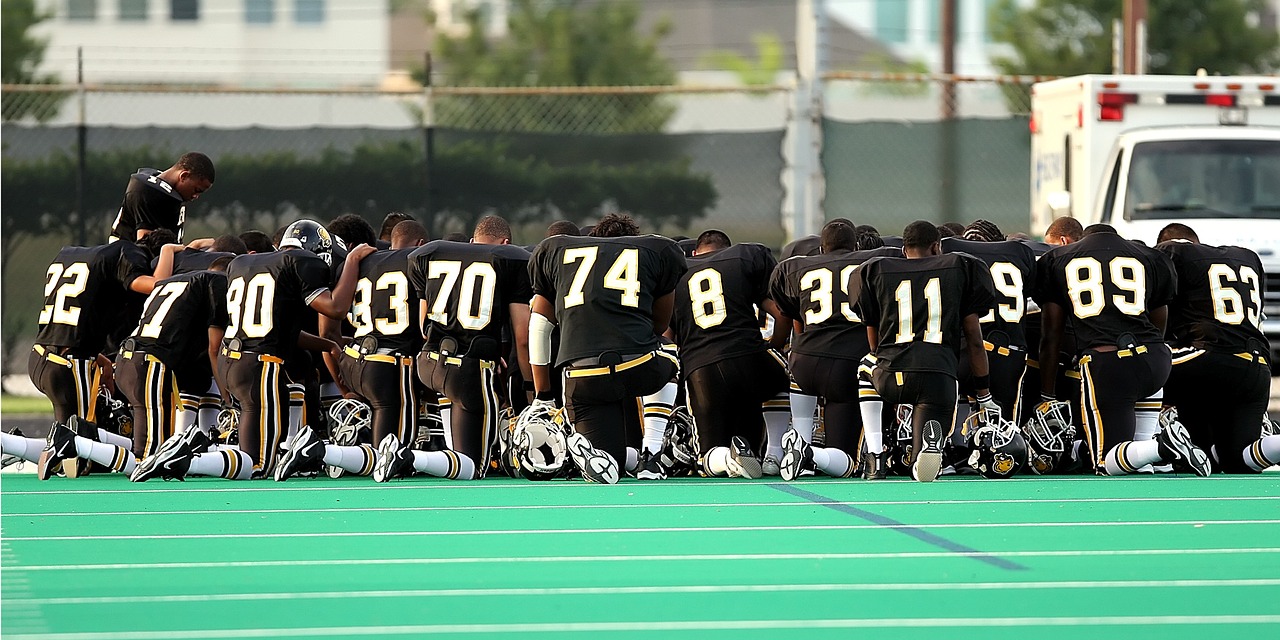27 Valuable Lessons From Sports That Have Shaped My Life!
Even though it happened many years ago, I remember it like it was yesterday. I was a scrawny and scrappy little 9-year-old aspiring hockey player. Unfortunately, I had more piss and vinegar and attitude in me than I did common sense. Some may say that some things never change, and they may be right.
I was the goalie for my team and the only goalie for my team, meaning I never came off the ice. About halfway through the game, I could sense ice building up on my skates. So, during a break in the action, I took off my glove to wipe the ice off my skate blade. The problem was that I had just got my skates sharpened, so they were razor sharp. As you probably guessed, I sliced my index finger open and had a sweet little gash that was pouring blood. I skated over to the bench to show the coach. It was at this point early on in my life where I learned some of my first valuable life lessons from sports.

We will discuss the lessons I learned from that incident later in this post – which is fittingly focused on lessons from sports. Being a rambunctious little kid, I think my parents put me in as many sports as possible to both keep me out of trouble and to make me expend as much energy as possible, so I would be less of a handful at home. But I also think they knew how valuable lessons from sports could be in shaping a young brat’s life.
I played competitive sports all the way up through varsity football in college and the lessons I have learned have had such a profound impact on my life that I do not know where I would be right now without them. I don’t have any kids of my own at this point in time, at least that I know of. But when I hear my friends talk about them taking their kids to various sporting events, it makes me smile, as I know how much the lessons they are about to learn from playing sports will shape their lives.
As I wrote in a recent blog post, one of the most valuable lessons I learned playing college football was how to be coachable and handle constructive criticism. That and the fact that football season is now in full swing, inspired me to write a blog post on 27 life lessons learned from sports – both on and off the field.

Here we go…
27 Valuable Lessons From Sports
(1) Discipline
Being an athlete requires discipline in so many ways – eating right, training consistently, being on time for meetings and practices, not getting penalties and many more. Being disciplined in life is, in my opinion, an incredible trait to have.
(2) Being prepared
In most sports, not being prepared will almost always cost you. The same thing goes for our personal lives. The habit of being ready and prepared will ensure that you are always ready for that interview, opportunity or even hot date later in life.
(3) How to lead
Being a member of a team will expose you to many facets of leadership – from watching your coaches, to other coaches, to referees, to opposing players and your teammates. It will also allow you to hone your own leadership skills, both leading by example and vocal leadership – skills you can use the rest of your life.
(4) How to follow
Not only do you learn leadership skills, but you also learn how to follow. In sports, you are not always the leader, many times it is the coach or other players. Just like in life, sometimes you are the leader, but oftentimes you are not – so being a good follower is crucial.
(5) Following instruction
This is part of being coachable. In many sports – plays, strategies and individual skills can be complicated and not always easy to follow. Honing this trait allows you to build a skill that translates nicely to many areas of life including following instructions from your boss, teacher or spouse!
(6) Hard work and sacrifice
Even though I am not a New York Giants fan, I love this clip from Bill Parcells:
To quote the coach, “this is why you lift all them weights, this is why you do all that stuff!” Early morning practices, lifting weights, endless wind sprints and conditioning, grueling practices in the heat or cold. Playing sports takes a lot of hard work. Eventually, you get used to it and it becomes part of you and it is something you carry on to the other areas of your life. As the old saying goes – “The way a person does one thing is the way they do everything”. Being a varsity athlete, sometimes you have an early morning practice the next day meaning you can’t go out and act the fool with your friends, thus teaching you the importance of making sacrifices.
(7) Competition is a big part of life
When playing a sport, only one team or person can win, meaning teams must compete if they want to come out on top. There are many times in life where more than one person wants the same thing – be it a job, admission to a college, or even a love interest – which means we must often compete for things.

(8) Sometimes you win and sometimes you lose
That’s just life! By playing sports you learn how to be as gracious in defeat as you are when you win. You also learn that while winning is great and losing sucks – neither defines you. In life, you will experience a lot of winning and a lot of losing – so getting used to it by playing sports helps later on down the line.
(9) Persistence
How many times have you seen a team or player that was down and out come back to snatch victory from the jaws of defeat? Anyone who has played sports sure has and it just shows how critical it is to be persistent and NEVER give up!
(10) Playing through pain
Sometimes you get hurt playing a sport and you need to play through it. The same thing goes for life, you may not feel well but you still need to go to work or school.
(11) Getting better
There is only one way to get better when playing sports and in life and that is…practice!
(12) Being a good teammate and helping others
Sometimes your teammates are having a bad game or practice and you need to pick them up. The same thing in life, everyone has a bad day or sometimes people need your help and vice versa. That’s what teammates, friends, family, and coworkers are for.
(13) Respecting authority
You learn quickly at a young age to respect authority, be it coaches, referees, or parents – which translates to respecting your elders, servicemen/women, bosses, teachers, professors and others in positions of authority you will encounter in your life.
(14) Teamwork
One of the fundamental lessons learned in sports is how to work with others as a team to achieve a team goal. Which is a skill you will need for the rest of your life. As the cheesy acronym goes, TEAM = together everyone achieves more.

(15) Getting your head right
In my opinion, like most things in life, sports is 90% mental in terms of being confident and believing in yourself. So, it is crucial that you always get your head right. If you are even a bit unsure of yourself, you are screwed! In life, you can’t be cocky, but you MUST be confident and believe in yourself 100%
(16) Treating people differently
We are all different and are all motivated differently. Some players need a kick in the ass and some need an arm around them. And some need a kick in the ass one day and a hug the next day. The lesson is that you need to figure out what makes different people tick, then coach or manage them appropriately.
(17) Always finding an edge and trying to improve
Being the runt of my team, I learned early on that I would have to overachieve to compete which meant practicing extra hours, lifting weights, getting extra coaching – whatever. This lesson has carried on where I am always trying to find ways to get better.
(18) Staying calm
In sports, things don’t always go your way, but the last thing you want to do is lose your cool or panic as it just makes things worse. The same thing goes for life, stuff always happens, and I have learned when it does to take a deep breath, stay calm and just figure it out – like I always have.
(19) Not listening to what people say – fans talking smack
I remember my senior year of college we were playing in an opponent’s stadium, and during pre-game warmups, some of their fans had learned my name and were talking smack. It was good natured stuff like ‘hey aren’t you from Canada? Shouldn’t you be playing hockey eh?’. I just laughed and ignored it and saw it for what it was, white noise. In life people will talk trash about you and to you, you can’t let it affect you, don’t listen to what other people say and keep your eye on the prize.
(20) Importance of sleep and nutrition
This is a big one, with all the training and practicing, you learn quickly that you need your sleep and you need to fuel your body with good food to perform your best – and luckily for me, those habits carry on.
(21) Time management and being organized
Being a student-athlete means you are always on the go and to accomplish everything in both your academic and athletic life you need to be organized and get good at time management – which definitely helps when you get out in the real world.
(22) Playing by the rules
There are no shortcuts to success either on or off the field. If you break the rules on the field, you will end up being suspended or being penalized – both of which hurt not only you but your team. If you don’t play by the rules in life, you end up in jail which hurts not only you but those who love you.
(23) Be ready for the unexpected
Many times, in sports, the other team tries trick plays, this means you need to be ready for anything. Similarly, in life, unexpected things can happen and you need to be adaptable and possibly deviate from your original plan.
(24) There is always someone better – focus on what you can control
Whether it is on the court, field, ice or whatever – there is always going to be someone better than you. You can’t worry about them, you can’t control them. But you can control you, which is what you learn to focus on. In life, there is always someone smarter, better looking, stronger, with more money – you can’t worry about them and need to focus on improving yourself.
(25) Have fun!
Sports, as serious as they can be, are meant to be fun! Same goes for life, the lesson I have learned is to always enjoy the journey and the process.
(26) Sticking up for yourself and your teammates – not backing down
Sometimes in sports, you are confronted with a bully or someone who tries to take advantage of you and you learn to stick up for yourself and your teammates. When I was an 11-year-old soccer player, a couple guys jumped one of my friends on the field. Long story short I ran over to defend him which resulted in a huge brawl.
(27) Dealing with consequences
It also resulted in me being suspended for 30 days. You quickly learn in sports that every action, good or bad, warranted or not, results in consequences, and you have to be a big boy or big girl and deal with them. If you are going to do the crime so to speak, you need to do the time, just another great lesson learned from sports.

Before We Go, Back to My Mistake…
So, I skated over to the bench with blood running down my hand due to my bone-headed blunder. The coach grabbed a towel and wiped off the blood and took a look at my hand. Then he grabbed some hockey tape, wrapped up my finger and said, “you are the only goalie we have, get back in there, we can take care of your hand after the game, you are ok.”
I’m not sure what exactly my 9-year self was expecting him to do at that moment, but it sure wasn’t that!
Anyway, I went back in and finished up and we won – of course we did. Then after the game, my coach took me to the hospital where I would receive 9 stitches to close my little scar.
It is a scar I have to this day – and every time I look at it, it reminds me of the lessons I learned from it:
 You can’t let people down when they are relying on you, and you need to be accountable to your team.
You can’t let people down when they are relying on you, and you need to be accountable to your team.
 Sometimes you need to just suck it up, be tough and carry on.
Sometimes you need to just suck it up, be tough and carry on.
 Don’t clean your skate with your hand like a dumbass!
Don’t clean your skate with your hand like a dumbass!
And before you judge my coach and accuse him of borderline child abuse, my coach was my Dad. Thanks for the great lessons Dad.
Until next time, be careful with sharp skate blades, suck it up and as always…PYMFP!
–Rick
If you enjoyed this post, it would mean the world to us if you shared it with people you care about via any of the social media platforms below!
Popular Previous Posts:
How to Find a Mentor in Your Life!
This is How I Learned How to Learn Faster
Investing in Yourself: This is How I Sharpen the Saw
This is How I Used Habit Stacking to Make My Bed
The Eye in the Sky Never Lies: Handling Constructive Criticism

An excellent article, and very applicable. So get ready for a rather long baseball story.
I played some baseball in college – first base, as I am tall, plus could stretch those extra inches that made the difference between an out and an infield hit. Not particularly fond of the coach, but I followed his directions on how to position myself in the field depending on the number of runners and the number of outs, and whether the batter was left or right handed. That probably got the team 5 or 6 outs during the season that otherwise might have resulted in the opponent scoring runs. I totally hated running wind sprints. But I did them anyway, because 1) the coach told us to, and 2) everyone else was in the same predicament. I never really had problems with the coach, always on time for practices and the games, paid attention in the chalk talks, positioned myself according to his hand signals. I just did not like the guy.
Fast forward about 20 years or so. The city where we lived had set up various youth sports leagues for soccer and softball, both boy and girl teams. My daughter wanted to try softball. Soccer became a “no-go” because of all the constant running around. Amy obviously inherited my complete dislike of running. Kids were randomly placed on teams based on age. Amy fit into the 12-14 group. The team’s coach put her at third base, she survived but really didn’t enjoy it. Besides, the team overall sucked rocks. Amy agreed to one more season, and got lucky. This coach knew what he was doing – assigned her to first base, the short pudgy kid became the catcher (think Yogi Berra, perfect physique for blocking balls in the dirt), the smallest kid pitched, the strongest thrower (who happened to be the tallest kid) played center field.
So I taught Amy how to play first base – how to hold a runner, positioning yourself in the field based on the situation, how to start and finish the 3-6-3 double play, when to throw to the plate with a runner on third. One trick I showed her dealt with ground balls to the infield. I told her “talk to the other infielders, and have them aim for your outstretched glove when throwing, rather than just throwing the ball to first base. Give them a target”. I could not help her with hitting, she swings right handed and I swing lefty. We would go to the park and practice her fielding and hitting. She was a fairly good hitter also.
This team just clicked from day one. The small kid’s pitches (thrown underhand) tended to rise in trajectory towards home plate, resulting in numerous strikeouts, both called and swinging. I nicknamed the kid Nolan (think Nolan Ryan), and the other parents watching the game picked up on it. One even brought “K” signs to the games, hanging them on the fence.
Amy’s team won the league championship that year. I looked at the final stats, she led the team in batting average and RBI’s, plus only made 2 errors in the field. Then it was on to the city championship against the other league winners, a double elimination tournament. Her team won that also.
Amy then hung up her glove and joined the high school marching band.
So Amy’s success in softball (bragging here) resulted from my teaching, which resulted from me listening and learning from a coach I did not particularly like.
Whew!
Thanks for the great story, Dave! Some great lessons learned by both you and Amy. You make a great point in that even if we don’t like someone, in your case your coach, that doesn’t mean you cannot learn from them. Well done. Take Care, Rick